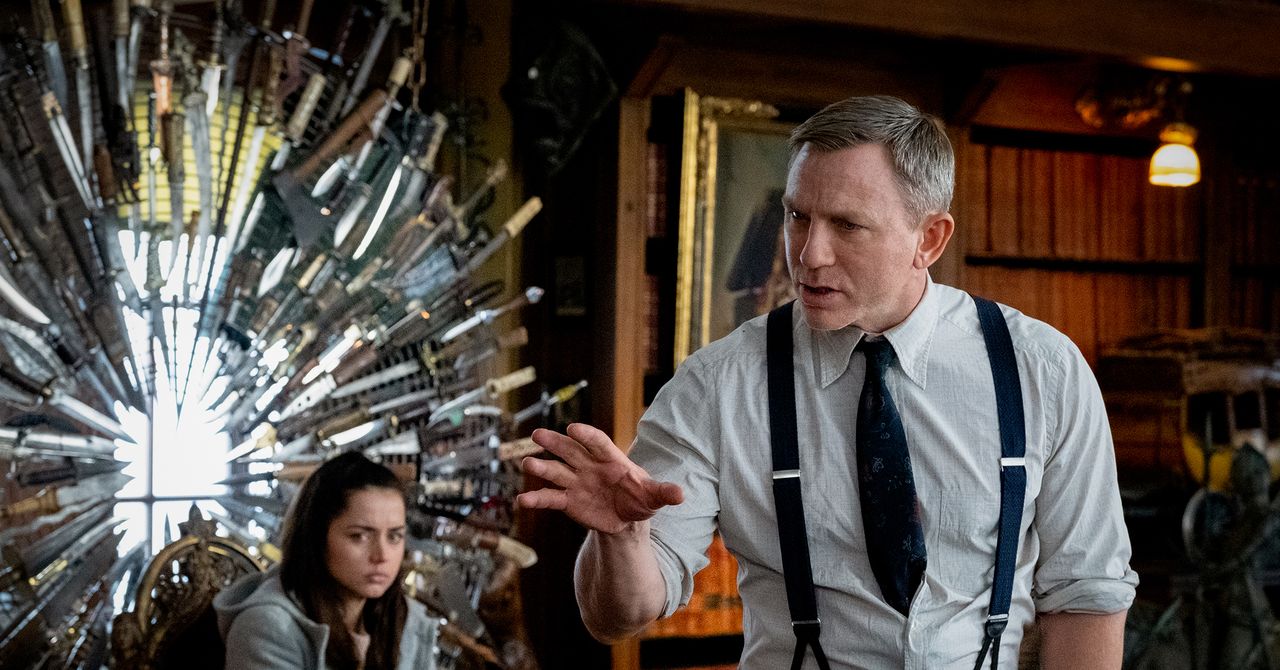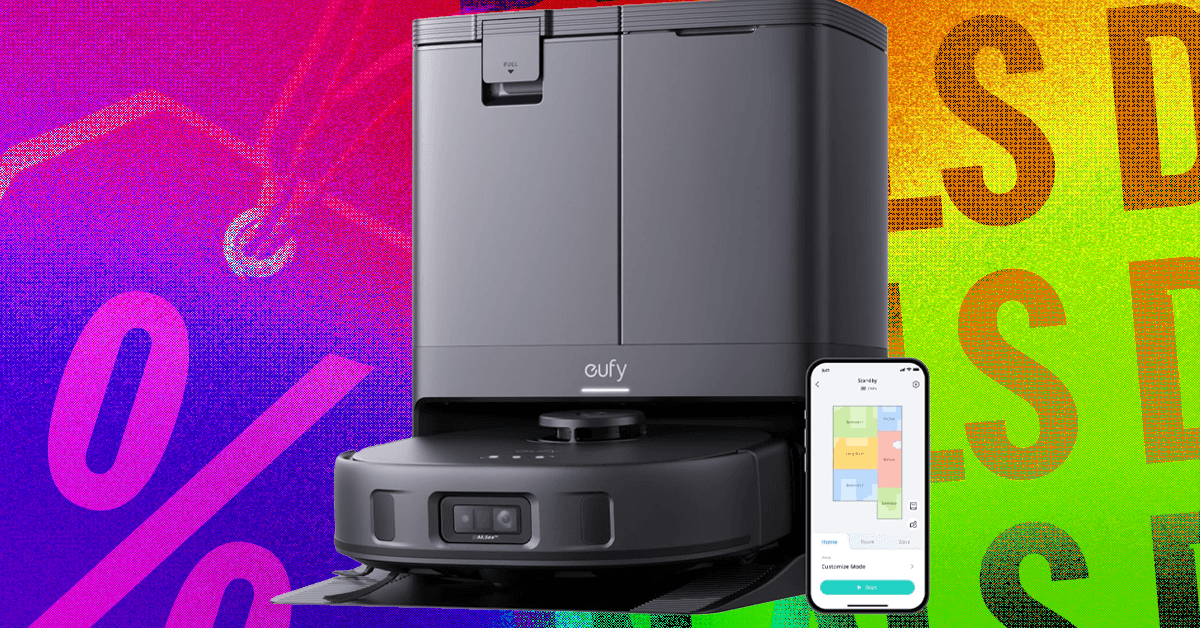Tech
The 24 Best Movies on Amazon Prime Right Now

In Recent years, Netflix and Apple TV+ have been duking it out to have the most prestigious film offerings, but some of the best movies are on Amazon Prime Video. The streamer was one of the first to go around picking up film festival darlings and other lovable favorites, and those movies are all still there in the library, so if they flew under your radar the first time, now is the perfect time to catch up.
Our picks for the best movies on Amazon Prime are below. All the films in our guide are included in your Prime subscription—no renting here. Once you’ve watched your fill, check out our lists for the best shows on Netflix and best movies on Disney+ if you’re looking for something else to watch. We also have a guide to the best shows on Amazon, if that’s what you’re in the mood for.
Knives Out
The debut outing of Benoit Blanc (Daniel Craig) finds the master detective investigating the suspicious death of famed crime novelist Harlan Thrombey (Christopher Plummer). It’s a case complicated by the deceased’s expansive, dysfunctional family, all of whom appear to have a motive for killing their supposedly-beloved patriarch. Boasting a murderers’ row of acting talent, including Chris Evans, Jamie Lee Curtis, Toni Collette, LaKeith Stanfield, and Ana de Armas as Thrombey’s attentive nurse Marta—director Rian Johnson’s Knives Out remains a masterful modern updating of the classic whodunit, packed full of meta twists that almost single-handedly reenergized the genre.
Air
Sure, nowadays Michael Jordan is a bona fide sports god, and Nike Air Jordans are still arguably the cool sneaker—but that wasn’t the case back in 1984. Jordan was a rookie, and Nike was about to close down its basketball shoe division. Enter Sonny Vaccaro (Matt Damon), a talent scout for the footwear maker who’s spotted a rising star in North Carolina who could turn everything around—he just needs to convince everyone else that Jordan is worth betting the company on. We all know how that panned out, so thankfully Air is more than a two-hour advert for gym shoes. Damon, Jason Bateman, Chris Tucker, and director Ben Affleck all deliver strong performances—only to be utterly eclipsed by Viola Davis in a magnetic and powerful, if somewhat under-utilized, turn as matriarch Deloris Jordan—while Alex Convery’s script keeps the drama on the people and personalities involved, rather than the boardroom. In an age of franchises and endless blockbusters, Air is the sort of character-focused film that rarely gets made anymore, and is all the more enjoyable for it.
American Fiction
Thelonious “Monk” Ellison (Jeffrey Wright) is a successful professor of literature, but a struggling author, his books constantly rejected for not being “Black enough.” After seeing fellow novelist Sintara Golden (Issa Rae) lauded for her pandering, stereotypical work, Monk pseudonymously pens a novel filled with every lazy trope and cliché he can imagine to lampoon the situation—but is horrified when it becomes an instant success. As a massive advance turns into a multimillion-dollar movie deal, Monk spirals as everyone from the public to his own family seems to love the deliberately offensive work. Based on Percival Everett’s novel Erasure, American Fiction is a darkly satirical work with a wicked sense of humor—an all-too-rare modern comedy with something to say, fronted by one of the finest performances of Wright’s career.
Heads of State
Grumpy British prime minister Sam Clarke (Idris Elba) and action-movie star turned US President Will Derringer (John Cena) can’t stand each other—so teaming up to survive after Air Force One is shot down over the Belarusian wilderness is going to put a real strain on the Special Relationship. Luckily for viewers, though, it also makes for one of the most hilarious and brilliantly choreographed action comedies in years. Priyanka Chopra Jonas is astounding as hard-nosed senior MI6 agent Noel Bisset, out to protect the combative world leaders from each other as much as a mounting terrorist threat, but it’s the spiky chemistry between the leads that really carries the film. Cena is so perfectly obnoxious throughout that you can’t help but feel Elba might actually hate him. A throwback of an action flick in the best way.
Deep Cover
When London police detective Billings (Sean Bean) hits a brick wall infiltrating criminal organizations, he turns to the only people he can trust: struggling improv actors. This ludicrous concept is played for maximum laughs by Bryce Dallas Howard as Kat, a comedian desperate for her big break, and Orlando Bloom as the intractably method-acting Marlon. But it’s Ted Lasso‘s Nick Mohammed who steals every scene as meek and awkward Hugh—an IT nerd who can’t act but “yes, ands … ” every increasingly farcical scenario the trio find themselves in. A bizarre blend of slapstick and Guy Ritchie-esque grit, Deep Cover fully commits.
The Adventures of Buckaroo Banzai Across the 8th Dimension
One of the absolute wildest films you’ve probably never seen, 1984’s The Adventures of Buckaroo Banzai is … almost impossible to describe. Centered on Peter Weller’s Dr. Buckaroo Banzai—a super-genius physicist, skilled neurosurgeon, high-flying test pilot, and beloved rock star—the film follows his battle with the evil Dr. Emilio Lizardo (John Lithgow) over the advanced “oscillation overthruster” that allows travel between dimensions. It’s so much stranger than that though. Expect alien invaders, identical twins of long-lost lovers, Orville Welles, and mid-1980s nuclear war paranoia, and that’s just scratching the surface. The highest of high concept sci-fi flicks, it absolutely bombed on release (despite a phenomenal cast including Jeff Goldblum and Christopher Lloyd) but has since more than earned its standing as a cult favorite. Even Weller himself can’t explain the film, but it is undeniably an experience.
Conclave
Arriving on Prime Video with divine timing, this parable of the election of a new pope makes for powerful viewing. When the pope passes, Cardinal Thomas Lawrence (Ralph Fiennes) starts the process of hosting the papal conclave to choose his successor—but given that the supreme pontiff is one of the most powerful positions on Earth, the election makes for anything but dry Catholic procedure. As the choice narrows to four candidates, and no one is allowed in or out until a new pope is elected, tension mounts while power plays, blackmail, and long-buried secrets rock the Holy See. Based on the novel by Robert Harris and directed by Edward Berger (2022’s All Quiet on the Western Front), Conclave is a meticulously researched and exquisitely shot drama, driven by magnetic performances from a cast including Stanley Tucci, John Lithgow, and Isabella Rossellini.
Evangelion 3.0+1.0: Thrice Upon a Time
Fair warning: As the culmination of 15 years of work for creator and director Hideaki Anno, and serving as a follow-up to his classic 1995 TV anime Neon Genesis Evangelion, this is hardly what you’d call a jumping on point for the notoriously complex mecha franchise. (Thankfully, Prime Video has the whole movie saga available, starting with Evangelion 1.11.) Nevertheless, snagging the international rights for this long-awaited film from Japan’s Studio Khara was a genuine coup for Amazon. Thrice Upon a Time brings to a close the decades-long tale of traumatized teenage robot pilots forced to fight biblically accurate angels—and worse, the twisted machinations of lead character Shinji’s abusive father, Gendo. With bewilderingly beautiful animation, plenty of emotional clout, and an ending that surprised even longtime fans, this is a textbook example of how to send a series out with a bang.
Challengers
Directed by Luca Guadagnino (Call Me by Your Name), Challengers follows the complicated three-way relationship between tennis aces Tashi (Zendaya), Patrick (Josh O’Connor), and Art (Mike Faist). Told nonlinearly, it volleys between the trio’s disaffected present and their more optimistic, exciting past. It’s an energetic and inventively shot sports movie, but the real match tension is in how the promise of Grand Slam glory (and no shortage of raging hormones—it is a Guadagnino film, after all) in the trio’s youth lead to choices that ricochet into the present. Tashi has been forced to abandon the court after a horrific injury, her now-husband Art is stuck in a competitive rut, and Patrick hustles low-stakes games to get by—but none of them have really moved on.
My Old Ass
The unstoppable rise of Aubrey Plaza continues in this smart, modern take on the coming-of-age dramedy. Written and directed by The Fallout’s Megan Park, My Old Ass follows 18-year old Elliott (Maisy Stella) who, on the cusp of college and major life changes, celebrates her birthday by taking mushrooms with her friends. Mid-trip, she meets … Elliott, age 39 (Plaza). It’s when she’s sobered up that things get really trippy, though. Elliott starts receiving text messages from the future—warning her to avoid a boy named Chad. Equal parts hopeful and melancholic, and with powerful performances from both actors playing an Elliott, this film beautifully captures the messy, joyful potential of youth and the nagging, wistful “what ifs?” that come with age. A delight however old you are.
Brittany Runs a Marathon
When Brittany (Jillian Bell) is told by her doctor to lose weight, she uses it as a reason to take control of her life. She starts by putting on a pair of trainers and challenging herself to run one block, which quickly escalates into deciding to run the New York City Marathon. First-time director Paul Downs Colaizzo based the story on the experiences of his friend, and highlights not only the benefits of running but also the pain. This film shows that no matter how bad things get, you can still get back up.
The Idea of You
The best rom-coms tend to succeed thanks to how unrealistic they are—the improbable meet-cute, the heightened emotions, the exaggerated gestures of affection, the dizzying spin of falling head over heels for someone. It’s something The Idea of You perfectly nails as it charts the relationship between successful gallery owner Solène Marchand (Anne Hathaway) and global music superstar Hayes Campbell (Nicholas Galitzine)—who also happens to be 16 years her junior. It could so easily have been cheap scandal fodder—and that’s how it’s played in-universe when the paparazzi get wind of Hayes’ relationship with the “older woman”—but as the pair embark on a globe-trotting romance, the charismatic leads serve up enough genuine chemistry to sweep the audience up in the whirlwind of it all. It’s ultimately less “will they, won’t they?” and more “should they, shouldn’t they?” thanks to a well-handled awareness of the age gap (already narrowed from the source novel by Robinne Lee), but for fans of the genre, it’s a delight.
Saltburn
Oxford student Oliver Quick (Barry Keoghan) is having trouble fitting in at the prestigious British university—until he befriends the popular Felix Catton (Jacob Elordi). Handsome, rich, and born to the landed gentry, Felix brings the awkward, socially invisible Oliver into his circle, eventually inviting him to spend summer at the family estate, Saltburn. But as Oliver works his way into the family’s graces, his obsession with Felix takes increasingly dark and deranged turns. Oscillating between black comedy and psychological thriller, writer and director Emerald Fennel (Promising Young Woman) frames the film in 4:3 aspect ratio for a tighter, almost voyeuristic viewing experience that makes its frequently unsettling moments even more uncomfortable. Having attracted plenty of debate since its 2023 release—not least for how it questionably navigates its themes of class and social inclusion—Saltburn was one of the year’s most divisive films, but one that demands your attention.
The Burial
Courtroom dramas are rarely laugh riots, but this tale of funeral home director Jeremiah O’Keefe (Tommy Lee Jones) and his flashy lawyer Willie Gary (Jamie Foxx) taking on a major player in America’s “death care” system brings a dark sense of humor to already grim proceedings. This is no comedy though. Based on true events, director Maggie Betts’ (The Novitiate) latest drama retells a real-life legal case that exposed massive inequality in funereal care and the way Black communities were being regularly overcharged. Foxx and Jones are in top form throughout, but it’s Jurnee Smollett as Mame Downes, Gary’s rival attorney who threatens to outpace him at every turn, whose performance threatens to steal the whole movie. For a film about death, The Burial proves warmly life-affirming.
A Million Miles Away
Charting the life of José Hernández, this biopic—based on Hernández’s own book—mixes the aspirational with the inspirational as it follows its central figure’s rise from, in his own words, migrant farm worker to the first Mexican-American astronaut. Michael Peña is in fine form as Hernández, painting a picture of a man almost myopically driven to reach space, no matter the cost, while Rosa Salazar impresses as his wife Adela, refusing to fade into the background even as she puts her own dreams on pause for José to chase the stars. In lesser hands, this could all be cloying—a twee tale of hard work and achieving the American Dream, with a dash of NASA promo material on the side, but director Alejandra Márquez Abella has her lens as focused on the small beauties of life here on Earth as the splendor and sheer potential of space. A rare delight.
Red, White, and Royal Blue
Look, this is clearly a “best film” by a highly specific metric—and that metric is “gloriously cheesy trash.” Adapted from Casey McQuinston’s best-selling novel, this intercontinental rom-com charts the relationship between First Son Alex Claremont-Diaz (Taylor Zakhar Perez) and Prince Henry (Nicholas Galitzine), the “spare” to the British throne, going from rivals through to grudging respect, and ultimately groundbreaking romance. It’s often ludicrous, including an inciting incident seeing the pair falling into a wedding cake, a tabloid-worthy tryst in a hotel room, and political intrigue surrounding Alex’s mother, President Ellen Claremont (Uma Thurman, vamping scenes with a bizarre “Texan” accent), but it’s all just irresistibly wholesome and upbeat. Red, White, and Royal Blue is the movie equivalent of pizza—not good for you, but still delicious.
Shin Masked Rider
If you’re sick of cookie-cutter Hollywood superhero movies, then this ground-up reboot of one of Japan’s most beloved heroes deserves your attention. Helmed by Hideaki Anno (Evangelion, Shin Godzilla, Shin Ultraman—“shin” meaning “new” or “true” in Japanese), this revamps the 1971 TV series Kamen Rider. Like that show, it follows motorcyclist Takeshi Hongo (Sosuke Ikematsu). Kidnapped by the terrorist organization S.H.O.C.K.E.R. and forcibly converted into a powerful cyborg, Hongo escapes before being reprogrammed as an agent of the group, instead using his newfound powers to take down its forces. However, unlike the original, Anno’s approach taps into the body horror of the core concept, while also challenging his characters—and audience—to hang onto their intrinsic humanity in the face of a world trying to dehumanize them. It’s more violent than you’d probably expect, often showing the grisly outcome of regular people getting punched by superpowered cyborgs and monsters, but never gratuitous. While those with some understanding of the source material will get more out of Shin Masked Rider, it’s an exciting outing for anyone looking for something a bit fresher from their hero movies.
Borat Subsequent Moviefilm
Sacha Baron Cohen’s “Kazakh” TV reporter (even if he speaks Hebrew) travels back to the US, 14 years after his last feature-long escapade. This time Baron Cohen has brought his (Bulgarian-speaking) teenage daughter along, with the mission of giving her “as a gift” to some powerful American politicians—initially Mike Pence, then Rudy Giuliani. In classic Boratic fashion, the mockumentary follows the wacky duo on a cavalcade across Trump’s America, filming candid performances by unsuspecting characters ranging from QAnon believers to Republican activists to prim debutantes, all the way to Giuliani himself. Even the coronavirus pandemic, which struck America as the film was being shot, is subverted as a comedic plot point. Baron Cohen delivers, with the expected repertoire of shock gags and deadpanned verbal enormities, and he manages to land some punches at the expense of bigots. In contrast to its 2006 predecessor, many of the pranks and stunts here seem more aimed at eliciting the audience’s nervous laughter than at exposing America’s heart of darkness, but it remains a worthy—and funny—watch.
Nanny
Aisha (Anna Diop) is a Senegalese woman working as a nanny for a rich couple in New York City, hoping to earn enough to bring her son and cousin to join her in America. However, her future is at the mercy of her employers, who seem content to leave Aisha to raise their daughter, Rose, while often withholding her pay. As the stress of the power imbalance weighs on her, Aisha begins having strange dreams of drowning, worsened by her fears of abandoning her own child. The feature debut of director Nikyatu Jusu, Nanny contrasts the horror of the immigrant experience in modern America with something darker, while swapping the expected tropes of hope and opportunity for a palpable sadness for culture and community left behind. Nanny takes a slow-burn, psychological approach to its scares, but Diop is phenomenal throughout, and the meticulous pacing and gorgeous cinematography means every frame lingers.
Coming 2 America
Relying on nostalgia to carry new entries in long-dormant series can be risky business, but Eddie Murphy’s return to the role of Prince—now King—Akeem of Zamunda more than three decades after 1988’s Coming to America shows how to do it right. Drawn back to the US in search of a son he never knew he had, Akeem—and the audience—gets to reunite with familiar faces from the first film, before director Craig Brewer (Hustle and Flow) reverses the formula and tests the American characters with a trip to Zamunda. With a sharper, smarter, and more globally aware script than the original, Coming 2 America defies the odds to be a comedy sequel that stands up to the reputation of its predecessor.
Thirteen Lives
Director Ron Howard’s latest gathers a top-notch cast—including Viggo Mortensen, Colin Farrell, and Joel Edgerton—for a dramatization of the 2018 Tham Luang cave rescue, where a Thai junior soccer team and their assistant coach were trapped in the flooded cave system. As an international effort mounts to save the children, the challenges of navigating miles of underwater caverns become ever more dangerous, and Howard masterfully captures every perilously claustrophobic moment of it. A nail-bitingly tense movie with some ingeniously shot aquatic scenes, Thirteen Lives is a testament to one of the most difficult rescues ever performed.
One Night in Miami …
Based on the play of same name, One Night in Miami follows four icons of culture, music, and sports—Malcolm X, Jim Brown, Sam Cooke, and Muhammad Ali—at the height of the Civil Rights Movement, a converging and pivotal point in their lives and careers. Meeting in a motel room in the wake of Ali’s—then still Cassius Clay—heavyweight victory over Sonny Liston in 1964, the four men discuss their roles in the movement and society as a whole, all while the audience knows the weight of history is bearing down on them. The close confines of much of the film reflect its theatrical roots, but this feature directorial debut from Regina King perfectly portrays the larger-than-life personalities of its cast. Kingsley Ben-Adir is on fire as Malcolm X, with Aldis Hodge, Leslie Odom Jr., and Eli Goree—as Brown, Cooke, and Ali—all utterly magnetic.
The Report
Produced by Amazon, The Report is an engrossing depiction of the US Senate’s investigation into the CIA’s “enhanced interrogation” program—how it came to be, who knew about it, and how the CIA massaged the facts to support its efficacy. Adam Driver stars as Daniel Jones, the lead investigator who plowed an increasingly lonely path to the truth, battling against political resistance and CIA interference all the way. Driver is, as is his habit these days, superb, and the film’s 82 percent “fresh” rating on Rotten Tomatoes is well earned.
Sound of Metal
Punk-rock drummer and recovering addict Ruben starts experiencing hearing loss, and it threatens to upend his entire life. Faced with an impossible choice between giving up his hearing or giving up his career, Ruben begins to spiral, until his girlfriend Lou checks him into a rehab center for the deaf, forcing him to confront his own behavior as much as the future he faces. Riz Ahmed is in spectacular form as the troubled Ruben, while Olivia Cooke’s turn as Lou, who suffers with her own demons, including self-harm, is riveting. Fittingly enough, Sound of Metal also features incredibly nuanced use of sound—and its absence—as director Darius Marder crafts one of the finest dramas in recent years.
Tech
The Best Presidents’ Day Deals on Gear We’ve Actually Tested

Presidents’ Day Deals have officially landed, and there’s a lot of stuff to sift through. We cross-referenced our myriad buying guides and reviews to find the products we’d recommend that are actually on sale for a truly good price. We know because we checked! Find highlights below, and keep in mind that most of these deals end on February 17.
Be sure to check out our roundup of the Best Presidents’ Day Mattress Sales for discounts on beds, bedding, bed frames, and other sleep accessories. We have even more deals here for your browsing pleasure.
WIRED Featured Deals
Branch Ergonomic Chair Pro for $449 ($50 off)
The Branch Ergonomic Chair Pro is our very favorite office chair, and this price matches the lowest we tend to see outside of major shopping events like Black Friday and Cyber Monday. It’s accessibly priced compared to other chairs, and it checks all the boxes for quality, comfort, and ergonomics. Nearly every element is adjustable, so you can dial in the perfect fit, and the seven-year warranty is solid. There are 14 finishes to choose from.
Tech
Zillow Has Gone Wild—for AI

This will not be a banner year for the real estate app Zillow. “We describe the home market as bouncing along the bottom,” CEO Jeremy Wacksman said in our conversation this week. Last year was dismal for the real estate market, and he expects things to improve only marginally in 2026. (If January’s historic drop in home sales is indicative, that even is overoptimistic.) “The way to think about it is that there were 4.1 million existing homes sold last year—a normal market is 5.5 to 6 million,” Wacksman says. He hastens to add that Zillow itself is doing better than the real estate industry overall. Still, its valuation is a quarter of its high-water mark in 2021. A few hours after we spoke, Wacksman announced that Zillow’s earnings had increased last quarter. Nonetheless, Zillow’s stock price fell nearly 5 percent the next day.
Wacksman does see a bright spot—AI. Like every other company in the world, generative AI presents both an opportunity and a risk to Zillow’s business. Wacksman much prefers to dwell on the upside. “We think AI is actually an ingredient rather than a threat,” he said on the earnings call. “In the last couple years, the LLM revolution has really opened all of our eyes to what’s possible,” he tells me. Zillow is integrating AI into every aspect of its business, from the way it showcases houses to having agents automate its workflow. Wacksman marvels that with Gen AI, you can search for “homes near my kid’s new school, with a fenced-in yard, under $3,000 a month.” On the other hand, his customers might wind up making those same queries on chatbots operated by OpenAI and Google, and Wacksman must figure out how to make their next step a jump to Zillow.
In its 20-year history—Zillow celebrated the anniversary this week—the company has always used AI. Wacksman, who joined in 2009 and became CEO in 2024, notes that machine learning is the engine behind those “Zestimates” that gauge a home’s worth at any given moment. Zestimates became a viral sensation that helped make the app irresistible, and sites like Zillow Gone Wild—which is also a TV show on the HGTV network—have built a business around highlighting the most intriguing or bizarre listings.
More recently, Zillow has spent billions aggressively pursuing new technology. One ongoing effort is upleveling the presentation of homes for sale. A feature called SkyTour uses an AI technology called Gaussian Splatting to turn drone footage into a 3D rendering of the property. (I love typing the words “Gassian Splatting” and can’t believe an indie band hasn’t adopted it yet.) AI also powers a feature inside Zillow’s Showcase component called Virtual Staging, which supplies homes with furniture that doesn’t really exist. There is risky ground here: Once you abandon the authenticity of an actual photo, the question arises whether you’re actually seeing a trustworthy representation of the property. “It’s important that both buyer and seller understand the line between Virtual Staging and the reality of a photo,” says Wacksman. “A virtually staged image has to be clearly watermarked and disclosed.” He says he’s confident that licensed professionals will abide by rules, but as AI becomes dominant, “we have to evolve those rules,” he says.
Right now, Zillow estimates that only a single-digit percentage of its users take advantage of these exotic display features. Particularly disappointing is a foray called Zillow Immerse, which runs on the Apple Vision Pro. Upon rollout in February 2024, Zillow called it “the future of home tours.” Note that it doesn’t claim to be the near-future. “That platform hasn’t yet come to broad consumer prominence,” says Wacksman of Apple’s underperforming innovation. “I do think that VR and AR are going to come.”
Zillow is on more solid ground using AI to make its own workforce more productive. “It’s helping us do our job better,” says Wacksman, who adds that programmers are churning out more code, customer support tasks have been automated, and design teams have shortened timelines for implementing new products. As a result, he says, Zillow has been able to keep its headcount “relatively flat.” (Zillow did cut some jobs recently, but Wacksman says that involved “a handful of folks that were not meeting a performance bar.”)
Tech
Do Waterproof Sneakers Keep the Slosh In or Out? Let WIRED Explain

Running with wet feet, in wet socks, in wet shoes is the perfect recipe for blisters. It’s also a fast track to low morale. Nothing dampens spirits quicker than soaked socks. On ultra runs, I always carry spares. And when faced with wet, or even snowy, mid-winter miles, the lure of weatherproof shoes is strong. Anything that can stem the soggy tide is worth a go, right?
This isn’t as simple an answer as it sounds. In the past, a lot of runners—that includes me—felt waterproof shoes came with too many trade-offs, like thicker, heavier uppers that change the feel of your shoes or a tendency to run hot and sweaty. In general, weatherproof shoes are less comfortable.
But waterproofing technology has evolved, and it might be time for a rethink. Winterized shoes can now be as light as the regular models, breathability is better, and the comfort levels have improved. Brands are also starting to add extra puddle protection to some of the most popular shoes. So it’s time to ask the questions again: Just how much difference does a bit of Gore-Tex really make? Are there still trade-offs for that extra protection? And is it really worth paying the premium?
I spoke to the waterproofing pros, an elite ultra runner who has braved brutal conditions, and some expert running shoe testers. Here’s everything you need to know about waterproof running shoes in 2026. Need more information? Check out our guide to the Best Running Shoes, our guide to weatherproof fabrics, and our guide to the Best Rain Jackets.
Jump To
How Do Waterproof Running Shoes Work?
On a basic level, waterproof shoes add extra barriers between your nice dry socks and the wet world outside. If you’re running through puddles deep enough to breach your heel collars, you’re still going to get wet feet. But waterproof shoes can protect against rain, wet grass, snow, and smaller puddles.
Gore-Tex is probably the most common waterproofing tech in footwear, but it’s not the only solution in town. Some brands have proprietary tech, or you might come across alternative systems like eVent and Sympatex. That GTX stamp is definitely the one you’re most likely to encounter, so here’s how GTX works.
The water resistance comes from a layered system that is composed of a durable water repellent (DWR) coating to the uppers with an internal membrane, along with other details like taped seams, more sealed uppers with tighter woven mesh, gusseted tongues, and higher, gaiter-style heel collars.
-

 Entertainment1 week ago
Entertainment1 week agoHow a factory error in China created a viral “crying horse” Lunar New Year trend
-

 Tech1 week ago
Tech1 week agoNew York Is the Latest State to Consider a Data Center Pause
-

 Business3 days ago
Business3 days agoAye Finance IPO Day 2: GMP Remains Zero; Apply Or Not? Check Price, GMP, Financials, Recommendations
-

 Tech1 week ago
Tech1 week agoPrivate LTE/5G networks reached 6,500 deployments in 2025 | Computer Weekly
-

 Tech1 week ago
Tech1 week agoNordProtect Makes ID Theft Protection a Little Easier—if You Trust That It Works
-

 Business1 week ago
Business1 week agoStock market today: Here are the top gainers and losers on NSE, BSE on February 6 – check list – The Times of India
-

 Fashion3 days ago
Fashion3 days agoComment: Tariffs, capacity and timing reshape sourcing decisions
-

 Business1 week ago
Business1 week agoMandelson’s lobbying firm cuts all ties with disgraced peer amid Epstein fallout




















